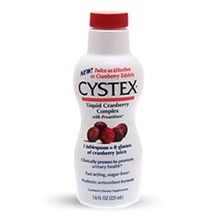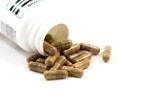NAD probe prompts ad rethink at DSE Healthcare over cranberry supplement

The New Jersey-based firm, which markets Cystex Urinary Pain Relief Tablets and Cystex Liquid Cranberry Complex with Proantinox, was asked to amend ads to better distinguish between the two products (the former is an over-the-counter (OTC) drug, the latter is a dietary supplement).
Ads, which appeared in print and online, included the following claims: ‘Cystex Helps Manage UTIs [urinary tract infections] . . . and Now Promotes Urinary Health’ and ‘Cystex both manages the pain associated with a UTI and reduces the progression of the bacteria.’
NAD argued that DSE had not made it sufficiently clear that the pain management claims were specific to the OTC tablets and pointed out that visitors to the firm’s website are presented with images of both products with the headline: ‘Prevent and Manage Symptoms of UTIs [urinary tract infections]’.
The Cystex website also includes the unauthorised claim: ‘New, Clinically-Proven Cystex Liquid Cranberry Complex with Proantinox Can Help Prevent Urinary Tract Infections.’
Health promotion, but not UTI prevention
DSE’s Cystex Liquid Cranberry Complex is relatively new, but has already secured listings in scores of retailers from Walmart and Fred Meyer to Duane Reade, Rite Aid, Safeway, Food Lion and Giant Foods, DSE vice president Bob Stites told NutraIngredients-USA.com.
"It's only been on the market for about a year but we are already enjoying great success. Most people that suffer from UTIs can get them on a recurrent basis, and taking a tablespoon of the liquid supplement a day is very effective. We think there is a real opportunity for continued growth."
The product, which contains a proprietary cranberry-based blend called Proantinox, comprises natural cranberry concentrate, D-Mannose from cranberries, bromelain from pineapple, ascorbic acid and inulin.
Cranberry and D-mannose are said to inhibit the adherence of bacteria to the lining of the urinary tract; while ascorbic acid (vitamin C) is reported to acidify the urine for the treatment of chronic and recurrent UTIs, while inulin – a prebiotic – may improve the balance of gut flora, and inhibit bacterial growth, claimed the company.
NAD agreed that DSE had provided a reasonable basis for claims that Cystex promoted urinary health but asked it to pull claims suggesting it could ‘manage’ UTIs.
The firm also agreed to modify a link on its site that took visitors from a tab with the question ‘How do I prevent UTIs?’ to a page promoting its dietary supplement. Any links to the supplement will now “use appropriate structure/function language, e.g., promoting and maintaining urinary tract health”, said the firm.
30 cases out of 145 cover dietary supplements in 2010
NAD, an industry-backed self regulatory forum which looks at national advertising in all forms of media, has one attorney – funded by the Council for Responsible Nutrition - focused solely on scrutinizing ads for dietary supplements.
“This focus has increased the number of such cases NAD can do," noted a spokeswoman. “In 2010, NAD handled nearly 30 dietary supplements cases [out of a total of 145 case].”
The NAD review process is voluntary, but if a company declines to participate, or declines to abide by the terms of a decision, federal agencies were contacted, she added, “We forward the advertising at issue to the most appropriate federal agency for further review. Nine times out of 10, we refer the advertising at issue to the Federal Trade Commission (FTC), although we also refer cases to the Food and Drug Administration (FDA). Compliance runs at about 95 percent.”








